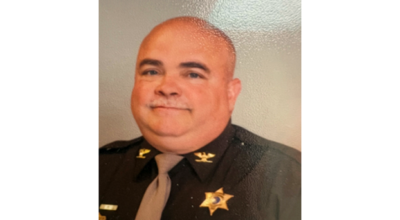State laws for ignition interlock devices tightened
Published 10:53 am Tuesday, March 22, 2016
LANSING — Secretary of State Ruth Johnson recently applauded new laws signed by Gov. Rick Snyder that tighten regulations for the breath alcohol ignition interlock devices issued to motorists convicted of drunken driving offenses.
The laws revise requirements for the sale, installation, regulation and removal of an ignition interlock device. They also increase the regulatory scope of the Michigan Secretary of State’s Office as the administrator of the state’s ignition interlock program.
“These laws close loopholes and toughen licensing requirements for ignition interlock mechanics and facilities,” Johnson said. “It is good news for consumers, who can now be confident that the ignition interlock installer they’ve chosen is certified by the state and will do the job correctly. I would like to thank Sen. Schuitmaker for shepherding this issue through the legislative process.”
An ignition interlock device connects with a motor vehicle’s ignition and other control systems. The interlock device measures the driver’s bodily alcohol content and keeps the vehicle from starting if the BAC is 0.025 or higher. The device also will ask for random retests while the person is driving.
“The ignition interlock program allows individuals with drunken driving convictions to seek the help they need while putting their life back on track,” said Schuitmaker, R — Lawton. “Currently, the program lacks integrity, which has compromised public safety. I proudly worked with Secretary Johnson on this legislation to ensure drivers with interlock devices are obeying the law and our loved ones are safe on the road.”
If the device records three start-up test failures in a monitoring period, or one rolling retest failure while the vehicle is being driven, or if it detects tampering, the vehicle must be taken to a service center immediately. If that service is not done, the interlock device will go into a “lock-out” mode, and the vehicle cannot be operated.
Tampering with an ignition interlock or interfering with the testing process may result in the suspension or denial of the driver’s license, or may increase the time that drivers must wait before requesting a driver’s license appeal hearing.
Some of the highlights from Public Acts 32, 33 and 34 that affect the sale, installation and certification of the ignition interlock industry include the following:
• Only state-approved ignition interlock device manufacturers and vendors may install, service or remove an ignition interlock device in Michigan.
• Mechanics must hold a specialty mechanic’s certificate in ignition interlock service to work on such devices.
• The Secretary of State’s Office is authorized to inspect repair facilities that provide ignition interlock services, and may suspend, revoke or deny a repair facility or mechanic’s ignition interlock certification when violations of state law are found.
• Ignition interlocks must be able to provide a digital image of the person providing a breath sample and record the time and date the sample was given. This provides state officials with documented proof that the individual providing the sample is the verified driver of record.
• Installers convicted of a felony or alcohol-related driving offense within the previous five years will be precluded from ignition interlock approval eligibility.
“Under these new laws, dishonest individuals who attempt to defraud customers with fly-by-night ignition interlock operations, unlicensed mechanics or unscrupulous business practices will quickly find themselves facing serious legal consequences,” Johnson said.






